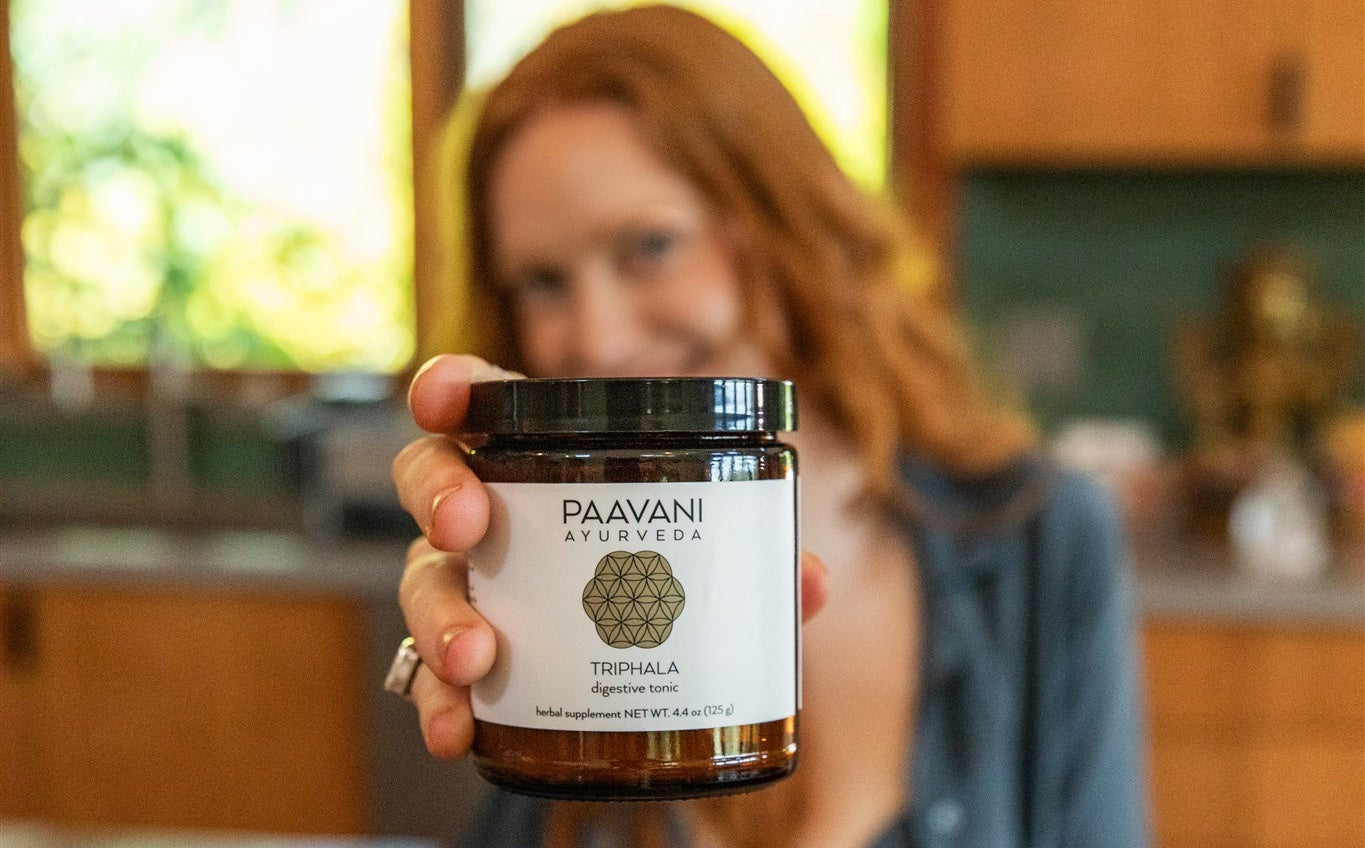
6 Ayurvedic Tips for a Healthy Back to School Season
Back-to-school season is here, and with it comes excitement, nervousness and germs! Whether you are a student anticipating project deadlines and late-night study sessions, a parent balancing a robust family schedule filled with extracurricular activities or a teacher preparing for early mornings and a classroom full of kids, the stress and demands of the school season can certainly take their toll. Furthermore, if you have young children, you are also all too familiar with the pathogens that run rampant throughout schools, indirectly infecting your homes. Thankfully, Ayurveda has some tangible tips and tools that can help students, parents, teachers, guardians and their families excel with A+ health this back-to-school season. Below, we share some of our favorite Ayurvedic recommendations to set you up for success and help you feel your best this school year.
1. Establish a Balanced Daily Routine
Since Ayurveda is a holistic approach to health, this ancient science reminds us that our daily decisions contribute to the outcome of our long-term physical health. From the amount of sleep we get each night, the foods we choose to eat, the company we surround ourselves with to the hygiene practices we engage in, each decision we make throughout the day directly affects our internal balance and overall health and wellbeing. Hence, Ayurveda emphasizes establishing dinacharya, or daily routines that promote a balanced body and mind. Ayurvedic dinacharya involves nourishing practices like lovingly oiling the body through abhyanga and eating wholesome, organic foods and also includes detoxifying rituals like tongue cleaning and neti (nasal cleansing) to keep the body free and clear from ama (accumulation of toxins).
If dinacharya is a new concept, we invite you to explore our Dinacharya page and print out our Dinacharya Guide, which outlines how to incorporate Ayurvedic dinacharya into your day. We suggest reviewing the dinacharya list and identifying which self-care practices are already a part of your daily routine. Next, list all the practices you do not do daily, rating them from easiest to hardest to implement. Going down your list, incorporate 1-2 of your “easiest” dinacharya practices into your daily routine. Do not add more rituals until the ones you are working with have become second nature, like brushing your teeth. By following this system, you will not only integrate dinacharya into your life but also put it to work for you! We are confident that Ayurvedic dinacharya will help you thrive this school year and beyond.
2. Protect & Bolster Immunity
As mentioned above, going back to school means exposure to more pathogens like the common cold, stomach viruses, strep throat, respiratory syncytial virus (RSV) and coronavirus (COVID-19), as well as mental stress that can deplete what Ayurveda calls ojas. We like to explain ojas as the body’s ability to withstand stress. Ojas is the subtle essence of kapha dosha and is connected with the body’s physical immune system. Emotionally, ojas is the golden nectar that protects the emotional and spiritual bodies from stress, pain and the turmoil that can come from being alive on this planet.
Ayurveda recommends committing to dinacharya practices that support the immune system to keep ojas and immunity strong. Establishing a balanced Ayurvedic routine will not only fortify the physical body but also strengthen the mind’s ability to withstand stressful situations like taking a difficult exam, dealing with a classroom of rambunctious kids or balancing school demands and one’s work life.
Some of our favorite dinacharya practices for strengthening the immune system include:
To enhance the effectiveness of dinacharya, you may also choose to internally support yourself with Ayurvedic herbs and foods. Antiviral and/or antibacterial herbs like turmeric, ginger, cinnamon, ashwagandha, shatavari and triphala can be enjoyed daily to support both the physical and subtle immune systems. Additionally, a focus on ojas-building foods like ghee, dates, almonds and raw cow’s milk are also recommended in Ayurvedic medicine.

3. Incorporate Herbs for Mental Clarity
Education is a blessing for the mind. Learning not only opens up the path for people to realize their dharma (life’s meaningful work), but it also helps to keep the brain active and can increase longevity. Additionally, through the plethora of information, ideas and knowledge attained during the school year, cognitive skills such as critical thinking, problem-solving, creativity and decision-making are strengthened, and new neural pathways are established in the brain.
There are herbs within the Ayurvedic apothecary called nootropics that support memory, cognition, mental acuity and conscious awareness. Incorporating nootropic herbs into your daily routine is an efficacious way to support your mental acuity and help you stay focused during the school year. At PAAVANI, we work with nootropics like ashwagandha, gotu kola, brahmi, shankh pushpi, turmeric, tulsi and lemon balm to mindfully formulate our Ayurvedic offerings. You can find these select nootropics in the following products:
Golden Milk (ashwagandha & turmeric)
Hydrate Blend Tea (ashwagandha)
Cool & Calm Blend Tea (brahmi)
Bliss Blend Tea (gotu kola, lemon balm & tulsi)
Vata Body Oil (ashwagandha)
Pitta Body Oil (gotu kola)
Tridoshic Body Oil (brahmi)
Nose Oil (brahmi, gotu kola, shankh pushpi & tulsi)
4. Cook Nourishing Foods at Home
Ayurveda advocates for cooking nutritious, prana-rich foods from home. In fact, in the 15 Ayurvedic Guidelines for Healthy Eating, this traditional medicine starts its list with the recommendation to “Eat food prepared by loving hands in a loving way.” A chef outside of the home can prepare food in a loving manner; however, when you cook food for those you love, there is no ingredient like your loving energy, which becomes infused into the meal. Furthermore, when wholesome, fresh, organic foods are cooked at home, we teach our children (and remind ourselves) the importance of eating healthy and also the art and skills behind preparing a meal. There is also more control over what type of ingredients will comprise a dish or snack when cooking in the comfort of your home. We also believe that relationships and ancestral lineages can be strengthened through passing down recipes and cooking side by side with those you love.
Since the school term traditionally begins at the end of summer or the beginning of fall, Ayurveda suggests cooking with seasonal ingredients that bring nourishing and grounding energy, like oatmeal, walnuts, ghee, spaghetti squash, zucchini, avocados, sweet potatoes, oranges, bananas, apples and more! For a full list of nourishing foods for the back-to-school season, visit our Vata Balancing Foods List. We also highly recommend our Vata Balancing Ojas Balls for a healthy any-time snack!
5. Commit to Healthy Movement & Exercise
Exercising daily is an excellent way to balance the stresses of the school season and care for the aches and pains that can undoubtedly develop. Beyond the physical benefits of exercise like improved flexibility, cardiovascular health, insulin levels, muscle mass and bone density, moving the body also positively affects the mind and emotions—for example, regular exercise improves sleep quality, energy levels and concentration. Regarding how exercise can be beneficial for students in particular, according to the Center for Disease Control (CDC), students who engage in physical movement and activity tend to have better grades and school attendance as well as improved memory and classroom etiquette compared to their classmates that do not engage in physical exercise. This fact comes as no surprise to Ayurvedic medicine since Ayurveda recognizes the deep connection between physical, mental, spiritual and emotional well-being.
Ayurveda recommends different forms of exercise depending on which dosha is predominant within an individual and which dosha is currently out of balance. Below is a short list of exercises, sports and yoga that are considered beneficial for each prospective dosha.
VATA
Hatha yoga, Restorative yoga, Yin Yoga, Tai Chi, Qigong, walks in nature, hiking, rock climbing and weightlifting with slow, deliberate movement.
PITTA
Hatha yoga, Restorative yoga, Yin Yoga, Tai Chi, Qigong, walks in nature, light jogging, hiking, weightlifting with slow, deliberate movement, skiing, snowshoeing, swimming, surfing, wakeboarding and windsurfing.
KAPHA
Ashtanga yoga, Vinyasa yoga, brisk walks in nature, hiking, jogging, running, cycling, high-intensity weight lifting and cardio exercise are good choices.

6. Prioritize Sleep
Making quality sleep an essential part of you and your family’s dinacharya is a critical factor in having a successful school year. After all, when you sleep, the body and mind can restore, regenerate, cleanse and renew. The reprieve that sleep brings from studying, problem-solving, and critical thinking is a crucial component in keeping the mind acute and clear, and sleep also helps with cognition and memory recall. We all have experienced the difference between taking on a challenging school/work day on little sleep versus being well-rested. With quality sleep, the nervous system and the mind are settled and able to take on the day gracefully and with ease.
Please note that Ayurveda recommends going to bed and waking at the same time each day. Ideally, this means generally waking at 6 a.m. and being asleep by 10 p.m., which will help your body sink into a healthy, balanced routine. You can read more about this on our Dinacharya page and in the printable PDF.
Wishing You Health & Wellness For the School Year Ahead
With the back-to-school season upon us, we hope you utilize our Ayurvedic tips to show up to the first day of school looking and feeling your best! Integrating Ayurvedic dinacharya, like grounding morning rituals, fortifying immune health, incorporating nootropic Ayurvedic herbs, committing to cooking more fresh foods at home, embracing physical movement and making quality sleep a priority are all effective ways to set yourself up for success in the school year. We hope this Ayurvedic wisdom reminds you to prioritize loving self-care even with the consistent demands of a busy school schedule. Wishing you and yours a prosperous, transformative and joyful academic year!





Leave a comment
This site is protected by hCaptcha and the hCaptcha Privacy Policy and Terms of Service apply.